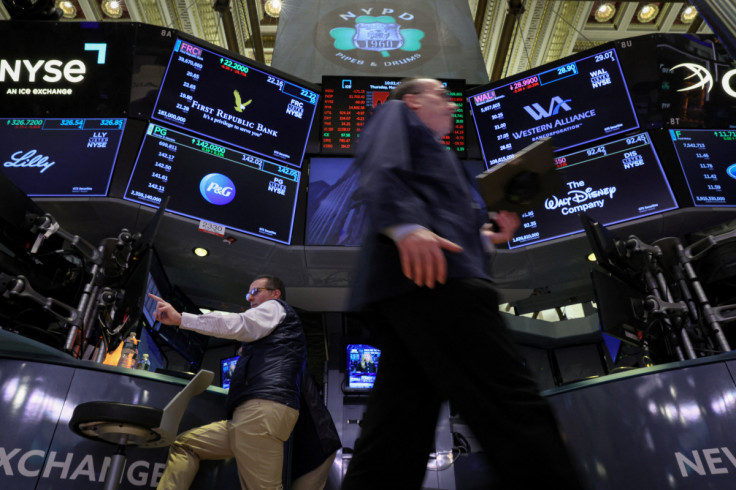Wall Street Falls On Banking Crisis Worries

Wall Street's main indexes fell on Friday as investors remained wary about a potential banking crisis even as the country's largest banks came to the rescue of troubled regional lender First Republic Bank.
Big banks including JPMorgan Chase & Co and Morgan Stanley threw a $30 billion lifeline to First Republic on Thursday, calming some nerves and helping U.S. stocks notch gains in the previous session.
Shares of First Republic fell 20.7% in early trading after the bank suspended its dividend payout.
The lender's shares have taken a beating this week, slumping 66%, in a widespread bank selloff after the recent collapse of SVB Financial and Signature Bank unleashed fears of a broader banking crisis stemming from surging interest rates.
SVB Financial said on Friday it had filed for a court-supervised reorganization under Chapter 11 bankruptcy protection to seek buyers for its assets, days after its former unit Silicon Valley Bank was taken over by U.S. regulators.
Peers PacWest Bancorp fell 13.2% while Western Alliance slid 11.7%
Big U.S. banks including JPMorgan, Citigroup and Wells Fargo were also down between 1.7% and 3.1%.
Most of the 11 major S&P 500 sectors were lower.
The KBW regional banking index and the S&P 500 banks index fell over 2% each.
"Deposits have fled from regional banks like First Republic into the big banks who are now bailing them out by putting the deposits back in. But it doesn't solve the problem," said Thomas Hayes, chairman at Great Hill Capital LLC.
"Until you stop the deposit flight from regional banks into the systemically important banks that are too big to fail, it doesn't matter how much money you pour into the bucket."
The news of the rescue came on the heels of a 50-basis-point rate hike by the European Central Bank (ECB), which remains laser-focussed on taming inflation despite concerns about the region's banks after troubles emerged at Credit Suisse.
Investors are now looking ahead to the Federal Reserve's interest rate decision, due next week, to gauge how it will tame inflation.
As U.S Treasury yields fell, megacap growth stocks Microsoft and Alphabet rose 1.6% and 1.4% respectively, providing some support to the Nasdaq which is looking at its biggest weekly percentage gain since November.
Money market participants now see a 72% chance of the Fed raising rates by 25 basis points on March 22..
Meanwhile, data showed production at U.S. factories edged up in February.
At 9:36 a.m. ET, the Dow Jones Industrial Average was down 203.60 points, or 0.63%, at 32,042.95, the S&P 500 was down 14.32 points, or 0.36%, at 3,945.96, and the Nasdaq Composite was down 29.74 points, or 0.25%, at 11,687.53.
On a positive note, shares of FedEx Corp rose 10% after the delivery giant raised its full-year earnings forecast.
Declining issues outnumbered advancers by a 3.79-to-1 ratio on the NYSE and by a 2.64-to-1 ratio on the Nasdaq.
The S&P index recorded two new 52-week highs and four new lows, while the Nasdaq recorded seven new highs and 75 new lows.
© Copyright Thomson Reuters {{Year}}. All rights reserved.





















